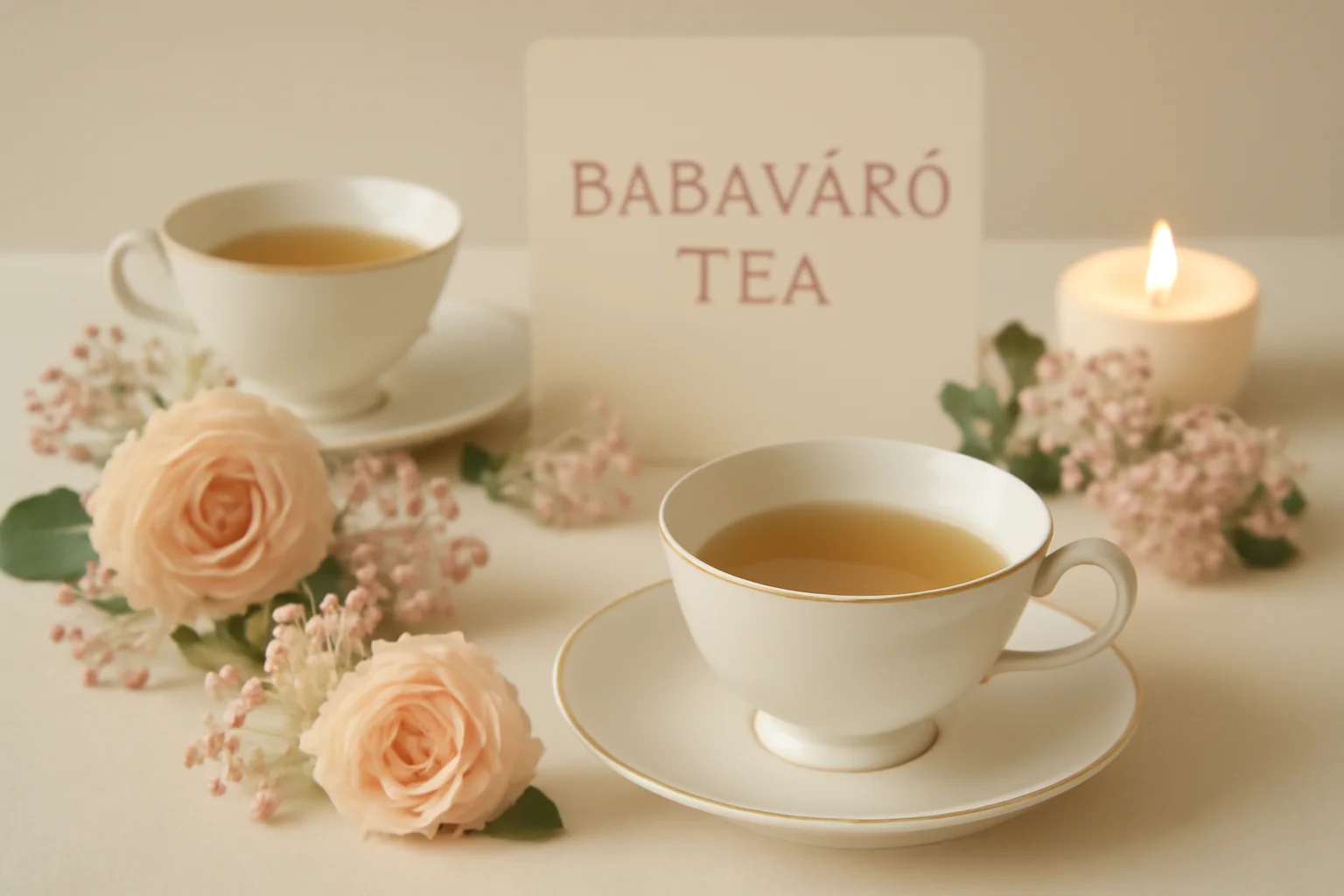
Baby Shower Tea: A Traditional Experience in Preparation for the Arrival of a Baby
The period of pregnancy is filled with special and wonderful experiences. For expectant mothers and couples awaiting a baby, this time is full of excitement, anticipation, and often many questions. During pregnancy, a woman’s body undergoes numerous changes, and these changes affect them not only physically but also emotionally. A healthy lifestyle and proper nutrition are crucial during pregnancy, as the well-being of the mother directly influences the development of the fetus.
Natural remedies, such as herbal teas, are widely popular among pregnant women. Pregnancy tea is specifically recommended during pregnancy, as it can help maintain the physical and mental well-being of expectant mothers. The various combinations of herbs are not only tasty but also have numerous beneficial effects. However, it is important to mention that not all plants and teas are recommended during pregnancy, so careful selection is advisable. In exploring the world of pregnancy tea, we can discover the different ingredients, their benefits, and the appropriate ways to consume them, so that pregnant women can safely enjoy the beneficial effects provided by nature.
What is pregnancy tea?
Pregnancy tea is a herbal tea blend specifically designed for pregnant women. The purpose of the various herbal blends is to support the health of the mother and the development of the fetus. Pregnancy tea typically contains herbs that are rich in nutrients, vitamins, and minerals, and can help alleviate unpleasant symptoms associated with pregnancy.
Pregnancy teas usually contain ingredients such as raspberry leaf, nettle, chamomile, or lemon balm. For example, raspberry leaf can help strengthen the uterine muscles in the later stages of pregnancy, while nettle is rich in iron, which is particularly important for pregnant women. Chamomile has a calming effect and can help reduce stress and improve sleep, while lemon balm can be a refreshing and tasty addition to the tea.
It is important to mention that pregnancy tea is not a miracle cure and does not replace a balanced diet or medical care. However, a properly selected and consumed tea can contribute to the overall well-being of the expectant mother. The beneficial effects of the teas should be considered in relation to the personal needs and conditions of pregnant women.
The beneficial effects of pregnancy tea
Pregnancy tea can have numerous beneficial effects for pregnant women. One of the most important advantages is that it can help alleviate unpleasant symptoms associated with pregnancy. Many expectant mothers may experience nausea, fatigue, or anxiety, especially in the first trimester. Herbs like chamomile and lemon balm can help reduce stress and anxiety through their calming effects.
Raspberry leaf is particularly popular in pregnancy teas, as it is traditionally used in the last months of pregnancy. Raspberry leaf stimulates the tone of the uterine muscles, which can help prepare for childbirth. At the same time, it is rich in vitamins and minerals, contributing to the health of both the mother and the fetus.
Nettle, another common ingredient in pregnancy tea, is rich in iron and vitamins, which can help prevent iron deficiency, a common issue during pregnancy. Iron is essential for the formation of hemoglobin, which is important for the oxygen supply of both the mother and the developing baby.
The hydrating effect of pregnancy tea is also worth mentioning, as proper fluid intake is essential during pregnancy. The tea can also help alleviate bloating and digestive issues, which can contribute to the comfort of the expectant mother.
How to prepare pregnancy tea?
Preparing pregnancy tea is a simple and quick process. The first step is to select the appropriate ingredients. It is best to choose organic, high-quality herbs to ensure their beneficial effects. The most commonly used herbs include raspberry leaf, nettle, chamomile, and lemon balm.
When preparing the tea, it is advisable to follow these steps:
1. **Preparing the ingredients:** Select 1-2 tablespoons of dried herbs, depending on the flavor profile you desire. For example, if you choose a combination of raspberry leaf and chamomile, the flavors will complement each other harmoniously.
2. **Boiling:** Bring 2-3 cups of water to a boil. Once the water has boiled, remove it from the heat.
3. **Steeping:** Add the selected herbs to the hot water and let it steep for 5-10 minutes. The longer you steep, the more intense the flavor will be.
4. **Straining:** After steeping, strain the tea to remove the herbs.
5. **Flavoring:** You can flavor it with honey or lemon to taste, but it is advisable to avoid too much sugar.
When consuming pregnancy tea, it is essential to be mindful not to drink too much. Generally, 1-2 cups per day may be sufficient, but it is best for the expectant mother to listen to her body, and if any complaints arise, she should consult her doctor.
Important information regarding the consumption of pregnancy tea
Although pregnancy tea can have numerous beneficial effects, it is important for pregnant women to consume it consciously and carefully. Not all herbs are recommended during pregnancy, so it is crucial to be aware of the ingredients that should be avoided.
For example, certain herbs like sage or parsley are not recommended in large quantities during pregnancy, as they can have a stimulating effect on the uterus. Therefore, it is essential to thoroughly review the ingredients of pregnancy tea and, if possible, consult with a doctor or specialist before consuming the tea.
Another important aspect is the quantity of tea. While herbs can be beneficial, excessive consumption can also cause problems. Generally, 1-2 cups of tea per day is considered safe, but it is always advisable to pay attention to the body’s reactions.
In addition to consuming pregnancy tea, it is important to maintain a proper and varied diet, as providing nutrients is crucial during pregnancy. Also, pay attention to water intake, as proper hydration is essential for the health of both the mother and the fetus.
Finally, if any health issues arise, always consult your doctor, as they can best advise on what is most appropriate for you.
**Warning:** This article does not constitute medical advice. In case of health issues, please always follow your doctor’s advice.

